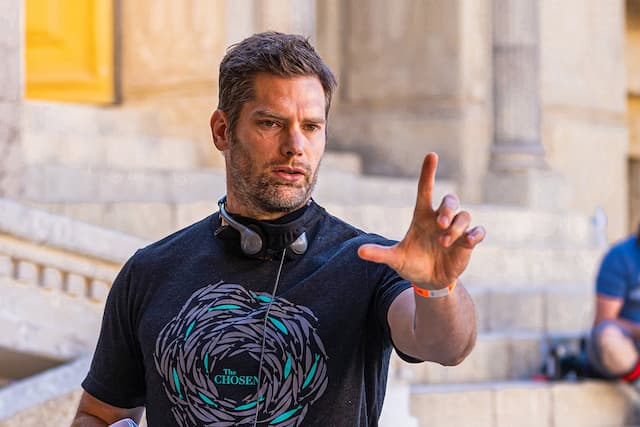A Scandal in Church Leadership
There is a scandal in church leadership! Not the scandal you read about in the newspapers where some pastor was just forced to resign. This scandal is ongoing and widespread. And to date, there has been no repentance and no reporting.
Let me tell you what’s going on.
The Word of God very clearly tells us what church leaders were doing during New Testament days: “… they are keeping watch over your souls, as those who will have to give an account” (Hebrews 13:17). That was their mission then, and that should be their mission now.
Really? There are people charged by God to know me, and to know me well enough they can give an account of what is happening in my spiritual life? Who are these people? I’ve never seen any of them in the churches I’ve attended. In many churches, the pastor doesn’t know you, and none of the leaders know you.
Ellicott’s commentary on this verse points out that the word “they” is emphasized in the Greek in order to stress it is pastoral leadership that has the primary responsibility for the spiritual health of church members. So impressed was Chrysostom by the enormity of this assignment, this famous, fourth-century preacher said he couldn’t read these words without trembling.
The Greek word for “watch” in this verse means to be vigilant, alert, attentive, wide-awake, almost sleepless.
This watching was concentrated, not casual, done by one stationed to guard, and not by one passing through, giving only a glance.
In fact, so important was this assignment, that commensurate skills for examining and treating were deemed crucial.
The words, “while shepherds kept their watching,” are found in the Christmas story, but today, it seems, it isn’t shepherds kept but shepherd slept. One artist depicted the scene this way.
There he lay—mouth open, eyes closed, knees tucked in a fetal position, oblivious to the world. His shepherd’s staff, now leaning against a tree, was at least ten feet away; and at the base of the tree was the reed he used to communicate with the sheep.
This particular night was eerily dark, without a star in the sky. Like always in this location, the night is a constant host to many predators; its calm can be interrupted at any moment.
Knowing this, the good shepherd will sleep lightly, ready to respond at a moment’s notice. This shepherd, however, sleeps deeply, almost like the apostle Peter did that night in prison when it seemed impossible for the angel to awaken him.
The sheep are nearby, but because they’re not tranquil they may not remain nearby. No surprise, really, for as every shepherd knows, sheep can be spooked—and in a flash can take their flight!
Should that occur on this night, one wonders: Would they be noticed in time? Or would reports have to be made once again of more sheep that got away?
It would be easy to say that the watch care Scripture talks about can’t be done. It would also be easy to give what we already know are bad answers for why that is.
Please, put a pause on that.
Instead, start to think of how this kind of leadership could be done. Contemplate. Meditate. Imagine.
Include in your imagining how this scene of a spiritual leader giving an account to the Lord will play out. The leader is summoned. The roll call begins. And all that the leader can do when each name is called is to shrug his shoulders. Totally embarrassed, he whispers for help—a clue, any clue—but fellow leaders can’t help him either.
Dumbfounded, he doesn’t know what to say! So, with ashen face and stooped shoulders, he says nothing. He just stands there.
One wonders if an account were offered—would it be insightful, or would it be superficial?
Would it focus on some circumstance, or would it focus on a deeper “inner stance”?
The watching God intends is one where the human heart is in view. It isn’t the watching done in a library when studying people patterns in a book, but the watching done in life where specific insights are desired and acquired about an individual’s heart.
In the book of Colossians, Paul spoke similarly to the writer of Hebrews when he declared, “Him we preach, warning every man and teaching every man in all wisdom, that we may present every man perfect in Christ Jesus” (Colossians 1:28).
The emphasis on every man in this verse is striking. And by making this emphasis three times, Paul made it clear that he wasn’t just treating people in groups; his focus included individuals.
Paul’s goal of presenting every individual perfect in Christ required, minimally, knowing what’s going on in each person’s life. A leader can’t know how to warn, how to teach, how to encourage, without information about the current condition of a person’s heart.
Spurgeon said, “There is no more Christlike work anywhere than for elder Christians to be watching over the young ones, checking their first declensions, nipping the evil in the bud …”
Of course, timely help like this can’t be given without an agenda to stay close. And it is just here, I submit, where the breakdown in today’s pastoral leadership is first obvious.
The fact is, leaders and their people aren’t close, not even in the beginning. By the very way we welcome new members into the church, it is clear even then that spiritual leadership never intended to get close.
Interestingly, there are two verses in Scripture which speak of David “following his sheep” (II Samuel 7:8 and I Chronicles 17:7). A different Hebrew word is used in each of the verses for the word “following,” but both words mean the same thing: from behind. Physically, David was behind the sheep.
But aren’t shepherds supposed to lead the sheep? Why would David be behind them? This doesn’t make sense.
Of course, David didn’t remain behind the sheep; he strategically stationed himself there, once there was no danger. Apparently, by periodically moving behind the sheep, the shepherd gained another perspective of their needs and ways.
This was one of their objectives. Shepherds not only lead the sheep, they also care for them, and protect them as they gain perspective of their need.
These shepherd skills were so valuable—and, thankfully, transferable—that God later tapped these skills to give Israel two of its greatest leaders, Moses and David.
In the New Testament the elders are told to shepherd the flock of God (Acts 20:28). Their primary caretaking agenda, you will notice, isn’t buildings and parking lots but one where leaders get close enough to their people to gain an awareness of their spiritual needs—their drifting, their distancing, as well as their recent victories and exhibited strengths.
The leaders of God’s church must know these things if they are going to provide godly leadership.
This issue of closeness between leaders and people is further stressed when Hebrews 13:7 tells the people of God to follow the faith of their leaders, “considering the outcome of their conduct.”
In the Greek, the word for “considering” is a strong word; it means to gaze, to look attentively, to look and look again, to scrutinize.
But how can this be done if there isn’t closeness? If I’m not close to a spiritual leader, how can I know how he is currently functioning in faith? If proximity and transparency are absent, these things can’t be done.
This leadership principle appears to be impossible, especially with churches having thousands of people. I don’t think it is impossible, but that really shouldn’t be our starting point. Scripture says what it says, and therefore pragmatism should never be allowed to amend or reject its message.
The call for closeness was firmly established two verses before verse 7 when God said, “I will never leave you nor forsake you” (Hebrews 13:5). Actually, this is a tame translation of this verse. What the Lord really said is, “I will never, never leave you. I will never, never, never forsake you”—a five-fold assurance of his continuing presence!
This is the context in which the needed closeness between leaders and people is set forth.
This closeness, clearly, is reciprocal. These leaders are to consider our life in order to guide us better; and we are to consider their lives in order to follow better. This isn’t just intimacy; it is intimacy with intent.
According to Hebrews 13:17, the intent is so we would obey. According to Paul, this intent relates to the final accounting previously mentioned, “so that we may present each man perfect in Christ” (Colossians 1:28).
Talk about missed pastoral leadership goals, this one seems to be totally missing.
The goal of presenting every man perfect refers to holiness—manifested holiness! But how can a leader know why this quality isn’t emerging, or the next steps for promoting its emergence, unless he knows a person well? The answer? He can’t.
Purposing to bless us with this kind of ministry, God declares that pastoral leaders are to rule over us. Of course, this isn’t an autocratic rule, a cold and capricious imposition by the powers that be. It’s more like the rule of a caring father, the kind of father who assumes responsibility for his children: wanting to provide, wanting to protect!
Hebrews 13:17 says believers are to submit to their leaders so they can give their account with joy. But will this be possible, given what is now known about church members?
There have been hundreds of investigative studies undertaken to identify the differences that exist between the beliefs and behaviors of people in the church versus the beliefs and behaviors of people outside the church; and virtually every one of these studies show these differences are negligible.
There have also been studies investigating the pedagogical ineffectiveness of our Sunday schools, studies investigating the ineffectiveness of small groups.
What these studies won’t do is contribute to any pastoral leader’s joy!
Minimally, three facts are clear: 1) the pastoral model of leadership in most churches today is not what Scripture sets forth; 2) there’s an avalanche of evidence available for not retaining this current model of leadership; and 3) we in the modern church are disobeying the Head of the Church by allowing the current model of leadership to remain.
One has to wonder how the pastor who loves Jesus can justify this sort of thing. By what right has he chosen to “edit God” and decide which commands he will follow and which ones he won’t?
It is a very serious thing to invite people into a church which, as it turns out, hardly resembles the church the New Testament describes. Leaders should always lead by first following what God said, the God they ostensibly serve.
Pastors can hear all this, remain silent throughout, know that what they just heard is correct, stare without blinking afterwards, then turn, walk away, and not do one thing about it.
This is a scandal.
Dr. J.W Phillips is the author of the solution-focused book, The Carelessness of Pastoral Care.











